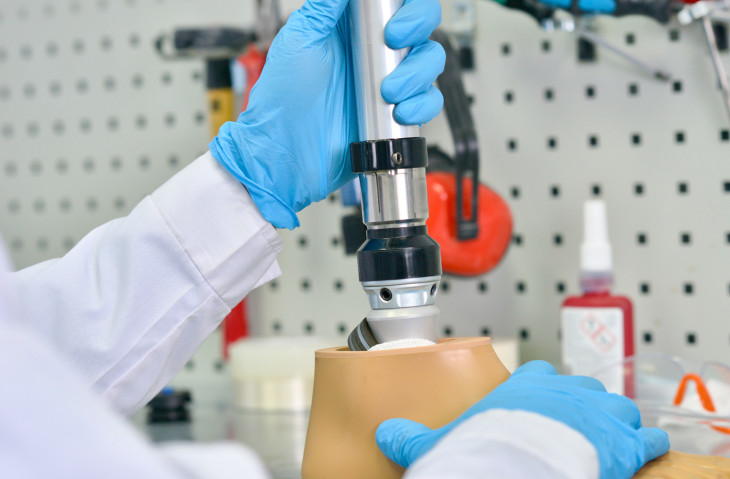Both prosthetists and orthotists require a minimum of a master's degree and certification prior to entering the field. These individuals also complete a 1 year residency prior to obtaining certification. Prosthetists are trained to work with external body parts and limbs that are artificially made.
Education & Training
Every prosthetist and orthotist must earn their master's degree in prosthetics and orthotics. These programs cover classes including upper and lower extremity prosthetics and orthotics, plastics and other materials and spinal orthotics.
Graduate degree programs have a clinical aspect that has students working under an O&P professional. The majority of programs require a minimum of 500 hours of clinical experience. This is split equally between prosthetics and orthotics.
Most master's programs take 2 years to finish. Students may have their bachelor's degree in any subject as long as they have completed prerequisite classes in math and science. Every program has its own requirements.
Training
Orthotic and prosthetic professionals who become certified need to have a 1year formal residency in prosthetics or orthotics prior to sitting for their certification exam. Those wishing to be certified in both disciplines need to finish a year of residency for each specialty and pass both sets of exams.
Licenses, Certifications, and Registrations
Certain places require O&P professionals to be licensed. Certification is typically required for licensure in order to obtain practice. The majority of O&P professionals earn certification by passing the exam offered by ABC or the American Board of Certification in Orthotics, Prosthetics and Pedorthics. In order to qualify to take the exam, individuals must finish their master's program in prosthetics and orthotics along with a residency program. Most O&P professionals become certified to advance their career.
Skills and Qualities that will Help
Communication skills: Prosthetists and orthotists are required to have stellar communication skills. They must effectively communicate with technicians who develop and create a variety of medical devices. It is necessary to explain to patients how to care and use these devices.
Detail oriented: Prosthetists and orthotists have to be precise when taking measurements in order to be accurate. The devices are specifically designed to fit according to said measurements and any wrong information could lead to uncomfortable and improperly fitted gear.
Leadership skills: Prosthetists and orthotists who have their own offices need to be excellent leaders to take care of the other professionals in the office and their patients.
Organizational skills: Certain prosthetists and orthotists prefer to work or practice in their own private offices. Therefore, great record keeping abilities and strong organization is vital in both business and medical environments.
Patience: Prosthetists and orthotists may work for extended periods of time with individuals with special needs.
Physical dexterity: Prosthetists and orthotists have to be capable of working with their hands. They may design equipment including prosthetics and orthotics with intricate mechanical pieces.
Physical stamina: Working with hand tools and shop equipment is common; therefore, prosthetists and orthotists need to be comfortable performing physical jobs. They may spend copious amounts of time crouching or bending over to measure patients.
Problem-solving skills: Prosthetists and orthotists have to find creative solutions to their patient's unique medical concerns in order to fully fulfill their rehabilitation requirements.









